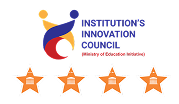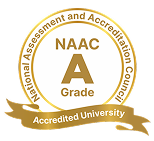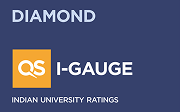

You may interested in
- The Mother Nectar: Nourishing Bond Through Breast feeding
- Awareness of Millet
- Export Talk on Honey production and Processing and Organic Mushroom Drying
- Unlocking Insights: Harnessing Power BI for Advanced Data Analytics
- Mastering Advanced Research Methodology with Practical SPSS Application
- Mera Yuva Bharat (My Bharat) Boot Camp on Youth Spicepreneur
- Women Empowerment in Agriculture: Enhancing nutrition and Opportunity
- Polyherbal Power Packet: Exploring the development and Nutritional, Organoleptic and Biochemical
- Exploring Nutritional Perception and Quality Distribution Of value Added Horse Gram Soup
- Harvesting Sustainability : Edible Bowls From Fruits and Vegetables Residues
- Expert Talk on Strengthening the food safety quality regulatory ecosystem towards enhancing the state food safety
- Value addition in Food and Entrepreneurship Opportunities
- Expert Talk: Nutritional Requirement For Children and Women
- Visit to the Amulfed Dairy at Gandhinagar
Past Events
-
The Mother Nectar: Nouris...
Ganpat University organized an event on “The Mother Nectar: Nourishing...
-
Awareness of Millet
The expert talk series, "Awareness of Millet," was designed to educ...
-
Export Talk on Honey prod...
An insightful expert talk session on " Honey production and Processing a...
-
Unlocking Insights: Harne...
The workshop on Power BI for Advanced Data Analytics, featuring Dr. Sameer Ro...
-
Mastering Advanced Resear...
Aim: The workshop aimed to equip students with advanced research methodologie...
-
Mera Yuva Bharat (My Bhar...
Ganpat University's K.K. Institute of Applied Sciences and Research (KKIASR)...
-
Women Empowerment in Agri...
On January 19, 2024, KKIASR hosted an engaging and insightful expert talk fea...
-
One Day Workshop on Asses...
There are three key conditions –novelty, innovation, and industrial applic...
-
Exploring Nutritional Per...
Ganpat University organized an event on “Exploring Nutritional Percepti...
-
Harvesting Sustainability...
Ganpat University organized an event on “Harvesting Sustainability : Ed...
-
Expert Talk on Strengthen...
An insightful expert talk session on "Strengthening the food safety qual...
-
Value addition in Food an...
A captivating and insightful expert talk was held at KKIASR on April 13, 2024...
-
Expert Talk: Nutritional...
The Food and Nutrition Department of Ganpat University organized an event on...
-
Visit to the Amulfed Dair...
On May 2, 2025, a group of 33 enthusiastic Second and Fourth year students of...
-
Indian National Science A...
INSA and GUJCOST, DST sponsored Two Days National Workshop on “Patenting i...
-
Hands on Training on Anal...
Shree S. K. Patel College of Pharmaceutical Education and Research, Ganpat Unive...
-
INDUSTRIAL PROSPECTS IN P...
Dr. Sanjay Kumar Jain has oversight for all aspects of Amneal India operation...
-
Entrepreneurship Awarenes...
Three Days Entrepreneurship Awareness Camp (EAC) was organized by International...
-
“HANDS ON TRAINING ON ANA...
Shree S. K. Patel College of Pharmaceutical Education and Research, Ganpat Unive...
-
Crafting a career in the...
Ms. Jhilam Pramanik invited Dr. S.S Pancholi (Executive Dean, Principal, SKPCPER...
-
Webinar on Patents and In...
Ganpat University Shree S K Patel College of Pharmaceutical Education and Resear...
-
Two Days GUJCOST sponsore...
A glimpse of GUJCOST sponsored two days national seminar on Analytical Spectrosc...
-
Webinar on Fundamentals o...
Shree S. K. Patel College of Pharmaceutical Education & Research, Ganpat Uni...
-
Design Thinking and Innov...
Workshop on “Design Thinking and Innovation” was organized by Ganpat...
-
Become Distinguished Lect...
Pre-Masters Bridge Course Food Processing and Safety Measures "Pre-Maste...
Expert Talk: Nutritional value of mushroom

Description
An insightful expert talk session on " Nutritional value of mushroom " was organized by KKIASR, Ganpat University, in online mode on 27th April 2024. Mr. Deep Jarsaniya, was invited to share his valuable information on the nutrional content present on mushroom, value addition and health benefits. The event garnered significant interest, with a total of approx. 38 participants registering for the session.
Talk exploring the nutritional value of mushrooms focus on understanding their full potential as a health-promoting food. Mushrooms are known for their rich content of essential nutrients, including B-vitamins (like B2, B3, and B5), vitamin D, potassium, selenium, copper, and phosphorus, as well as antioxidants and dietary fiber. These compounds contribute to a range of health benefits, such as improving immune function, reducing the risk of chronic diseases (like heart disease and cancer), and supporting digestive health. Understanding and emphasizing these nutritional aspects is key to promoting mushrooms as a valuable food source in global diets.
A critical objective is to raise public awareness about the health benefits of mushrooms and encourage their inclusion in everyday meals. This can be achieved through consumer education campaigns, focusing on mushrooms' versatility and their role in enhancing a balanced, nutrient-dense diet. Moreover, promoting mushrooms as a low-calorie, high-nutrient food can make them an attractive choice for health-conscious consumers.
Mushroom nutritional properties and their bioactive compounds will help uncover new health benefits and potential uses in functional foods, nutraceuticals, and medicinal applications. This can lead to the development of value-added products like mushroom powders, supplements, and fortified foods that retain and even enhance the nutritional profile of mushroomsAn important aspect of mushroom nutrition is preserving its benefits throughout processing and storage. Techniques like drying, freezing, and canning, when done correctly, can retain much of the nutritional value while extending shelf life. Mushroom cultivation can also play a role in promoting food security by offering an affordable and locally grown food source that is rich in essential nutrients.
Finally, mushrooms can be a solution to combating malnutrition, particularly in regions where access to diverse and nutrient-rich food is limited. By increasing their availability and affordability, mushrooms can address nutrient deficiencies, especially in populations at risk of malnutrition due to insufficient access to animal-based protein or other essential vitamins and minerals. Through these objectives, mushrooms can become a key part of a healthy, sustainable, and equitable global food system.
Outcomes of the Session: The following were the salient outcomes of the session:
Increased Awareness: Participants will develop a deeper understanding of the nutritional composition of mushrooms, including the specific vitamins, minerals, antioxidants, and bioactive compounds that contribute to human health.- Better Dietary Practices: Attendees will gain knowledge on how to incorporate mushrooms into daily meals, promoting a more balanced and nutrient-rich diet.
- Value-Added Product Development: Entrepreneurs and food producers will learn about the potential for developing value-added mushroom products (e.g., mushroom powders, supplements, and fortified foods), which can diversify markets and meet the growing demand for functional, health-oriented food options.
- Sustainability and Accessibility Focus: The session will highlight sustainable cultivation practices that preserve mushroom nutritional integrity while minimizing environmental impact. Participants will understand how to scale mushroom production responsibly and make nutrient-dense mushrooms more accessible to underserved regions and communities.
- Nutritional Preservation Techniques: Attendees will learn about effective processing and preservation techniques (like drying and freezing) that help maintain the nutritional value of mushrooms, ensuring that they retain their health benefits during storage and transport.








Ganpat University organized an event on “Polyherbal Power Packet: Explo...